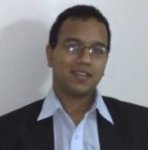The Iranian Nuclear Conference
27 Apr, 2010 · 3102
Siddharth Ramana outlines the major events at the Iranian Nuclear Summit
The Nuclear Security Summit discussed the safety and security of nuclear materials, and preventing its proliferation to non-state actors who could use them for terrorist purposes. While the al Qaeda was clearly identified, the Washington summit made references to the Iranians being the main problem. Iran, a signatory of the Non-Proliferation Treaty (NPT), has been repeatedly condemned by the West for developing an illegal nuclear weapons program. The international community’s concerns are accentuated by Iran’s documented state patronage of terror groups like the Hamas and Hezbollah. India cannot dismiss these fears due to its own problems with jihadis in the subcontinent. Iran’s linkage to Pakistani rogue nuclear scientist, AQ Khan, has further added to Indian concerns with the Iranian nuclear program. The Iranians have rejected these allegations. Accusing countries opposing their nuclear ambitions as hypocritical and organizing summits “designed to humiliate people”; Tehran launched its own nuclear summit titled “Nuclear energy for all, nuclear weapons for none”. However, compared to the Washington conference, many heads of state gave it a miss, with Prime Minister Singh stating that India would only be represented at the diplomatic level, because of the last minute nature of the conference.
The official theme of the conference was to discuss disarmament challenges, and promote practical steps to achieve nuclear disarmament. But its underlying theme was to showcase Iran’s vehement opposition to nuclear weapons, promote support for its nuclear program, and highlight western hypocrisy towards some non-NPT states in providing them with the nuclear technology only available to NPT signatories, and turning a blind eye to the nuclear activities of other states in the region. This was a build up from President Ahmadenijad’s September 2009 speech, where he declared a nuclear weapons program as “not being part of our plan.” Ayatollah Ali Khamenei, in his opening session, condemned the American nuclear weapons as ‘tools of terror’; while Iranian Foreign Minister, Manouchehr Mottaki, asserted that a nuclear free Middle East “required the Zionist regime to join the NPT”. The conference also discussed the legal aspects of using or threatening use of nuclear weapons, and the advisory rule (1996) of International Court of Justice on the illegitimacy of nuclear weapons which stipulates the obligation of nuclear states towards the implementation of Article 6 of NPT. The concluding statement articulated concerns about the “continued existence of Weapons of Mass Destruction- nuclear arms in particular- as well as their application or threat to apply them”. Ironically, as the conference was concluding, Iran celebrated ‘Army Day’, which boasted an annual military parade, showcasing its nuclear capable missiles, while extolling criticism towards Israel and the United states.
Oblique references to India were made in the speech by Iran’s Atomic Energy head, Ali Akbar Salehi, who spoke about the “interferences from certain western countries which are weakening the NPT”. The reference was to the Indo-US civil nuclear deal, which Iran has opposed, claiming that it weakens the nuclear proliferation regime. India and Iran have been at loggerheads over the responsibility of states in the nuclear sphere. India maintains that, as a NPT signatory, Iran would need to have far more transparent dealings with the International Atomic Energy Agency (IAEA) than at present. After India voted twice against it in the IAEA, Iran has repeatedly condemned the Indian stance, to the extent of even threatening a revision of bilateral relations. According to the Secretary of Iran's Supreme National Security Council of Iran, Saeed Jalili, “preventing Major Powers from imposing their influence on the International Atomic Energy Agency (IAEA) is another way of promoting nuclear disarmament and non-proliferation and strengthening of NPT,” which articulates the Iranian position vis-à-vis the Indo-US civil nuclear deal that it might pursue in the upcoming NPT review conference in May 2010. Iran has used the conference to demonstrate it strength, and highlight its position that the IAEA and international community have been unjust towards Iran’s nuclear program. Advocating the need for an “independent international group which plans and oversees nuclear disarmament and prevents proliferation”, President Ahmadinejad, outlined that such a group would need to be democratic and free from the political pressures which have marred the functioning of the IAEA.
In recent months, a number of countries have shown an ambivalent position on dealing with the Iranian nuclear program, especially in the light of their energy investments in the country, and their own political opposition to the United States. India has, of late, opposed a more punitive policy towards Iran, and urged a diplomatic solution to the Iranian nuclear problem in bilateral discussions with the United States and multi-lateral forums, including the recently concluded BRIC meetings. Indian regional interests have informed its hardline position towards Iran’s nuclear program. However mild diplomatic measures could provide Iran the much needed time for developing its covert nuclear facilities. A nuclear Iran is not in Indian interests, and while the conference professed global zero aspirations, the Iranian effort to develop covert enrichment facilities betrays that ideal. The Iranian position directs its hostility against Indian interests and deepens the battle lines that are being drawn before the NPT Review Conference.


